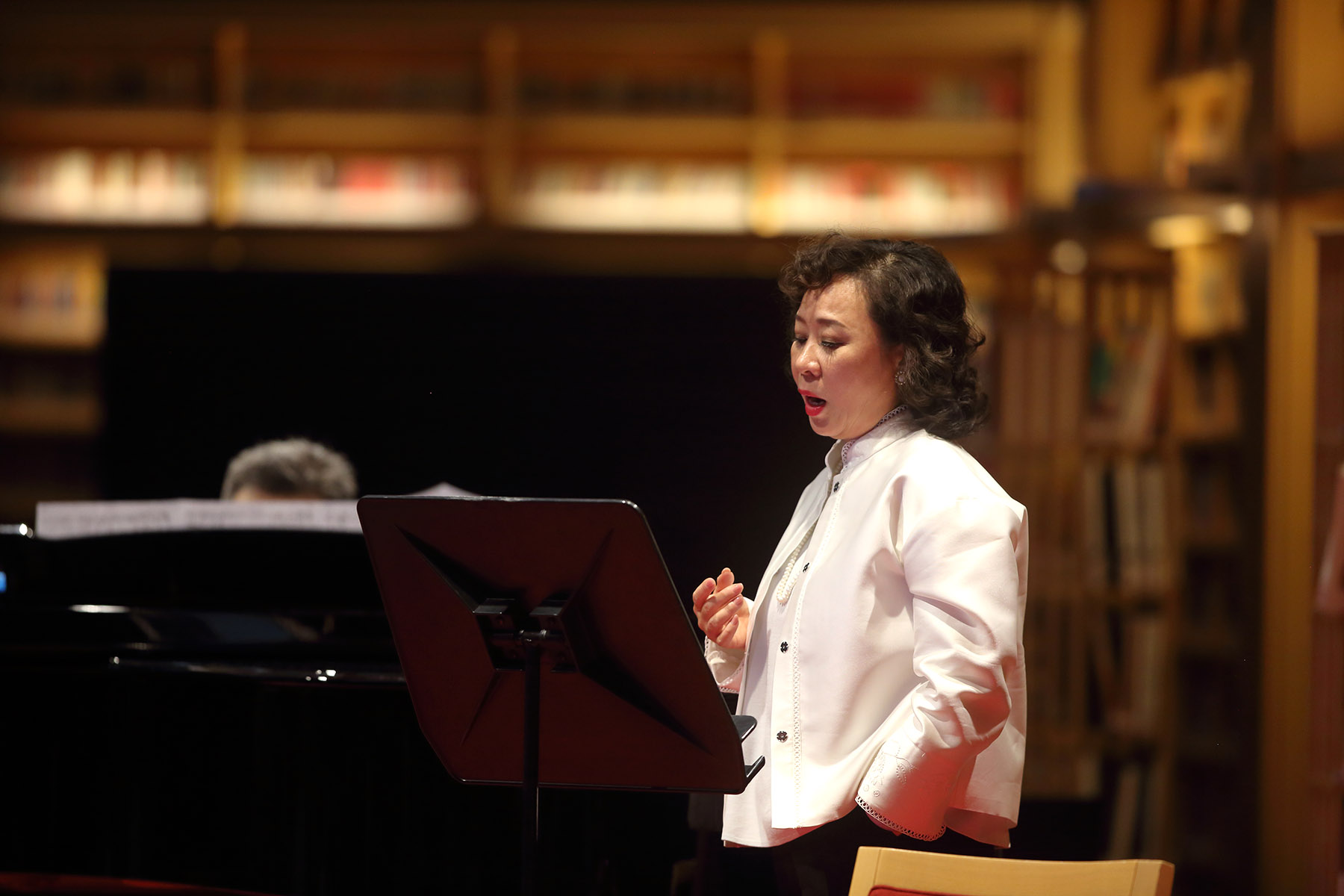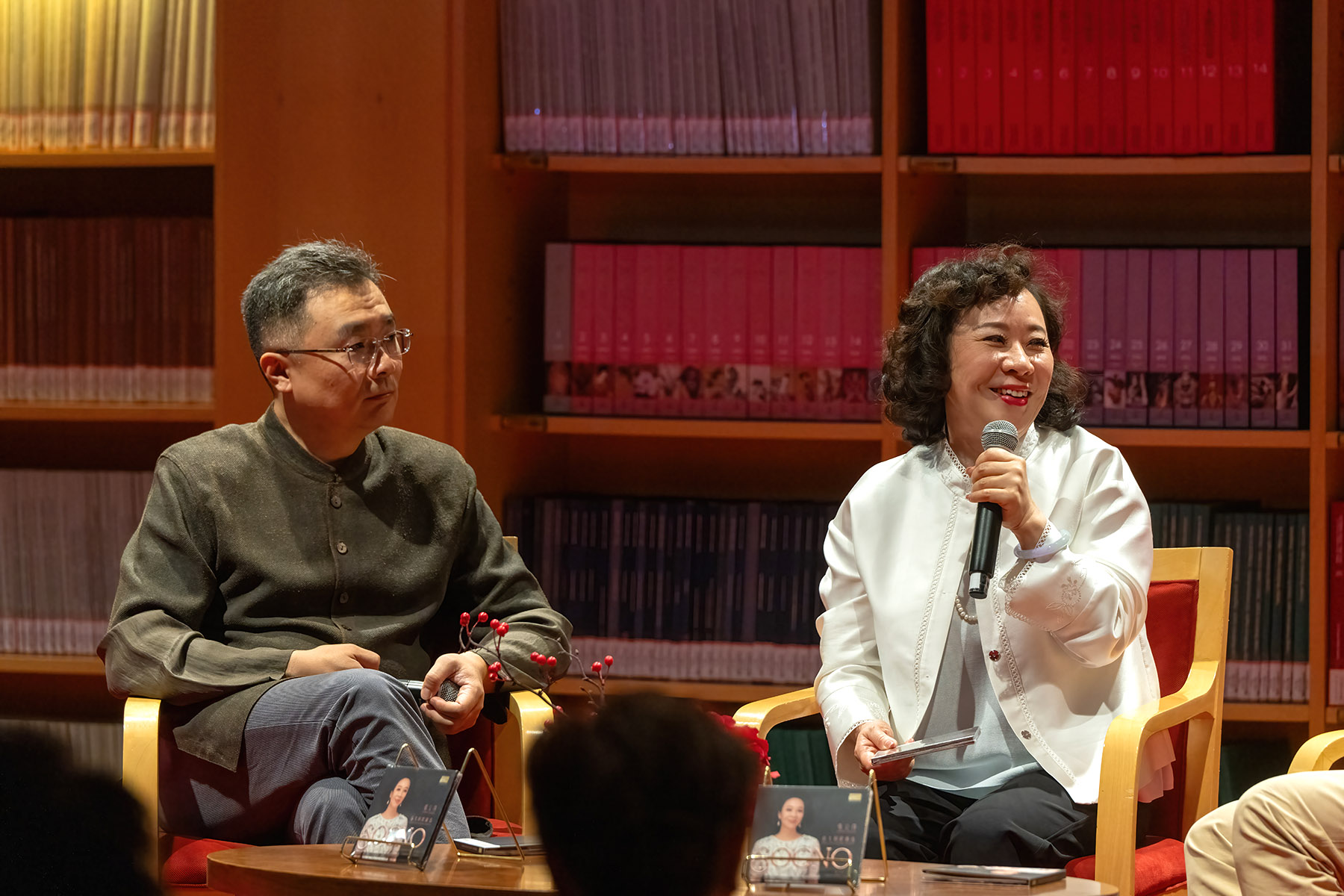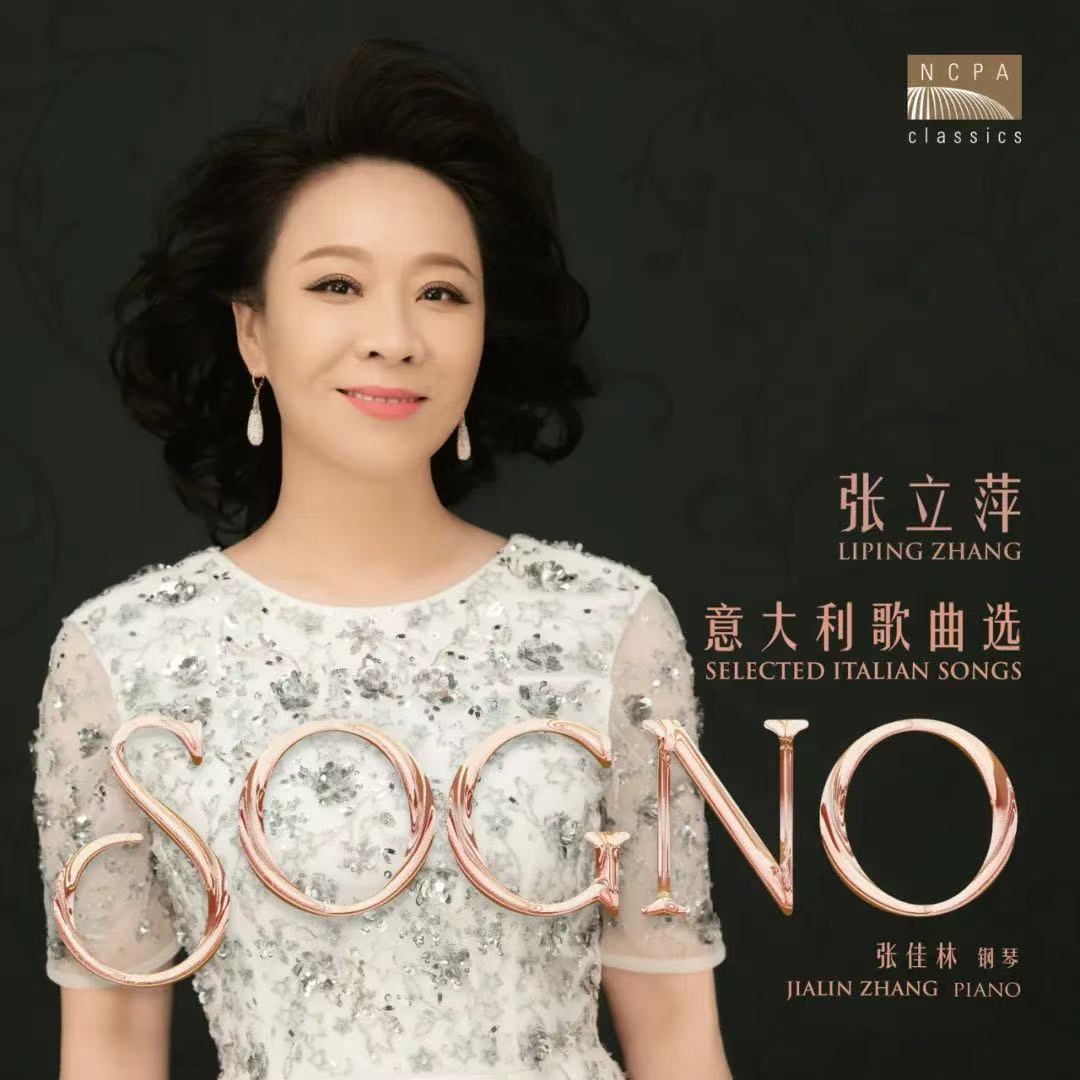Soprano's new album is all about the music that influenced her journey to stardom, Chen Nan reports.

Soprano Zhang Liping has released an album titled Sogno-Selected Italian Songs, in which she performs 16 works going back to the 17th century.
Zhang is one of the first Chinese sopranos to play a leading role at the world's top venue, the Royal Opera House in London, and one of the first to sing the title role in Giacomo Puccini's Madama Butterfly at the Metropolitan Opera House in New York.
She has achieved international acclaim by starring in more than 20 performances at top opera houses such as the Staatsoper Berlin, the Teatro Regio di Parma in Italy, and the Opera National de Paris.
Now a dedicated teacher, Zhang is a professor in the voice and opera department at the Central Conservatory of Music in Beijing and currently serves as the vice-dean of the School of Music at the Chinese University of Hong Kong, Shenzhen. At 59, she offers more than just a collection of beautiful melodies with this new album.
READ MORE: A conductor of cultural nuance shows his skills
"These songs were a part of my own formative years," she says. "They inspired me when I was young, and I hope they can ignite the same passion in my students' hearts."
She notes that Italian art songs, operas, and arias represent a core part of the Western classical vocal tradition. Many of the most celebrated composers in classical music, like Verdi and Puccini, wrote in Italian. For vocal students, learning Italian songs is almost a rite of passage to fully understand and engage with Western classical music.
"For a Chinese student, mastering Italian songs connects them to a centuries-old tradition, allowing them to explore and embody the emotions and stories embedded in the music," she says.
The challenge is obvious. For a Chinese singer — or any singer coming from a non-Italian musical tradition — learning Italian songs is not just about mastering the language or the notes; it's also about adopting a specific musical mindset that reflects the history, style and culture embedded in the music, she notes.
The album features a carefully curated selection of classic Italian songs, each resonating with the warmth and elegance of the Italian tradition.
It opens with the song Amarilli, one of the most famous songs from Italian singer and composer Giulio Caccini's Le nuove musiche, published in 1602.
This song is a beautiful example of the early monodic style that Caccini pioneered, according to pianist Zhang Jialin, who accompanied Zhang Liping in recording the new album.

Also a professor at the Central Conservatory of Music and a longtime collaborator with Zhang Liping, Zhang Jialin says the song is essentially a declaration of love, in which the singer reassures Amarilli of their sincere affection.
"The simple yet elegant melodic line is paired with expressive ornamentation that showcases the beauty of the human voice, especially when sung by a skilled soprano like Zhang Liping," says Zhang Jialin, adding that this piece is a standard in vocal recitals and a must-learn piece for vocal students at the Central Conservatory of Music.
Le violette, also featured on the new album, is often performed in recitals and showcases a singer's ability to express deep emotions through both melodic sensitivity and vocal technique. The beautiful aria from the opera Pirro e Demetrio, composed by Niccolo Jommelli in 1751, is one of Jommelli's works that blends elements of both Italian Baroque and early classical styles.
Zhang Liping named the album after one of the songs on the album, Sogno, written by Francesco Paolo Tosti around 1887. One of Tosti's most famous romantic songs, it is a great example of the kind of lyrical, expressive writing that became Tosti's hallmark in the late 19th century, she notes. In Sogno, the singer expresses the emotional experience of being lost in a dream, evoking feelings of yearning, desire, and idealized love. The song uses the metaphor of a dream to reflect on the beauty and fleeting nature of love.

Zhang Liping also adds that the pace of modern life is fast, and as a result, people have become accustomed to fragmented or quick, shallow listening experiences, without giving them much focused attention or emotional depth.
"These songs allow listeners to pause, slow down, and reflect on the deeper, more intricate emotions they might otherwise overlook in their busy lives. The music becomes a mirror that shows them parts of themselves they may not typically notice," Zhang Liping says.
Zhang Liping, who was born in Wuhan, Central China's Hubei province, received vocal training at the Wuhan Conservatory of Music and graduated from the opera department of the Central Conservatory of Music in Beijing in 1989.
ALSO READ: Subtle insights add to classic tale's appeal
As a young student, she was chosen to perform with Placido Domingo, a famous Spanish tenor and conductor, which inspired her to pursue opera under Canadian soprano Phyllis Mailing at the Vancouver Academy of Music.
In 1997, she moved to London and returned to her home country in 2006.
Another highlight of the album is the solo songs composed by Puccini, which are lyrically expansive, melodically beguiling, with texts and piano parts that serve the vocal line rather than exhibit the interplay of chamber music.
"The songs in this album were all composed to showcase the beauty of the human voice; their lyrics are not necessarily the primary focus of appreciation," says Zhang Jialin. "Perhaps these vocal works are best understood as pure music."
Contact the writer at chennan@chinadaily.com.cn


